ENGL 1023 – English Composition II
Credits: 3
Instruction continues (from ENGL 1013Links to an external site.) to emphasize developing students’ writing skills. Students write a minimum of five essays in response to readings in the literary genres of prose fiction, drama, and poetry. Students prepare and write a research paper dealing with a book-length literary work. (ACTS Department/Number/Title – ENGL 1023 Composition II)
I. Class I
Greetings: First, I want to tell you how very much I love Northark College and this area.
The Ozarks region is a gorgeous part of the country.

I love the Ozarks for several reasons, but I especially love the fact that the opening of the movie Tuck Everlasting was filmed near Harrison, AR, at Hawk’s Bill Crag.
If you look carefully at the movie trailer that I have linked below, you will be able to see that Jesse and Winnie were filmed standing on Hawk’s Bill Crag. Watch until the end, and you’ll get a glimpse of the Crag:
Please allow me to echo what Tuck said during the final seconds of the trailer that you watched:
“Be afraid of the unlived life.”
I believe that literature and writing are ways to experience life more fully. Let’s look at the very first words of the book Tuck Everlasting:
“The first week of August hangs at the very top of summer, the top of the live-long year, like the highest seat of a Ferris wheel when it pauses in its turning. The weeks that come before are only a climb from balmy spring, and those that follow a drop to the chill of autumn, but the first week of August is motionless and hot. It is curiously silent, too, with blank white dawns and glaring noons, and sunsets smeared with too much color.” ― Natalie Babbitt, Tuck Everlasting ―
Tuck Everlasting is a beautifully written middle-grade novel. The target audience of that book is older kids, but I prefer to think that Tuck Everlasting is an example of fine writing and that it is appropriate for all age groups. Although the first week of August has passed now for 2022, we are still square in the middle of that month. We are still at the very top of summer–at the top of another year. We are at the top of our own Ferris wheels of life, and we are looking at a vast amount of blank canvases and plain white pages in our own stories. During this next semester, we’ll begin to journey from this spot where we are today, and it is my sincere intention that you will leave this class with a lot of new tools that will help you navigate the rest of your journeys.
I have several goals for teaching Comp 2 to you, but one of those goals is to help you learn to express yourself better. Self-expression is vital in every aspect of living. In college, you’ll use self-expression as you write essays for many college classes. In business, you will need similar skills of expression to promote yourself and your ideas to employers. Some of you might choose to be creative writers, but creative writing is only a fraction of the various types of writing that you will use during your lifetimes.
Although Comp 2 will require a great deal of time and effort from you, I feel certain that ultimately, you will decide that learning to write better was time well spent. I don’t expect anyone’s first writing drafts to be perfect, but word by word, you will get better at writing. Anne Lamott is a famous memoir writer. I like what she has to say about beginning to learn to write:
“Almost all good writing begins with terrible first efforts. You need to start somewhere.”
― Anne Lamott, Bird by Bird: Some Instructions on Writing and Life
So word by word or bird by bird [as Anne Lamott called it], let’s get started, but I encourage you to consider several steps that will help secure success in this course:
- Create a plan.
- Come to class awake and ready to learn.
- Because there is a great deal of reading AND writing, you cannot afford to get behind in this class. Don’t procrastinate. Comp II should be part of your daily routine from now until Christmas.
- If you do start to feel overwhelmed, or if you don’t completely understand something, let me know as soon as possible. The worst thing you can do is nothing. Remember, I am here to help you.
- Turn work in on time: This one is self-explanatory and relates to the previous two steps toward success. If you don’t turn your work in on time, it might be because you didn’t plan well or it is because you have procrastinated. Either way, if you get behind, it might just destroy the next step to success.
- Maintain a positive attitude: Always ask yourself, “What can I learn from this exercise.” Not, “Why do I have to do this.” Of course, I encourage you to ask me the latter question because I do think it is important to recognize the value of every assignment. I do not believe in busy work. Everything planned for this course has value. Try to keep this in mind. It just might be the difference between success and failure.
Finally, I want to share with you a simple but important mantra: “Progress, not perfection.” Keep this in mind as you work through the semester. Skills take time and practice to develop, so don’t be too hard on yourself. Just keep at it and keep trying. This is how you will succeed.
II. Class II
- Introduction to class
Week One Assignments
Read the Prologue and Chapter 1 of Your Class Novel Something Wicked This Way Comes before the next class.
You will read this novel at home–on your own, but toward the end of the semester, you will write about what you have read. Please be responsible, and read this book in increments. I also suggest that you highlight important passages and annotate your book as you read it:
For Tabbing Books, I use Golcellia Transparent Sticky Notes, which are available from Amazon.

- In the Glossary of Literary Terms at the back of your main textbook, The Compact Bedford Introduction to Literature, look up the definitions for the following terms:
- allegory
- antagonist
- archetype
- character
- cliché
- figures of speech
- foreshadowing
- genre
- image
- metaphor
- paraphrase
- protagonist
- setting
- simile
- symbol
- theme
- thesis.
Understand these terms. You will need to refer to some of these terms when you are writing your papers for this class.
ASSIGNMENT: Paraphrase each of the definitions of the words in the previous list and write your paraphrased definitions. You will submit your definitions for a grade. Watch the following video about paraphrasing:
In the video about paraphrasing, it is suggested that you use synonyms in your work and that you consult a thesaurus to select synonyms. I use a thesaurus every day. The site thesaurus.com is bookmarked on my computer. It is a free site
- Thesaurus.com is both an online thesaurus and an online dictionary.
- Once you go to thesaurus.com, you can click the dictionary.com link and have ready access to a dictionary, too. I RARELY write ANY thing without using thesaurus.com
What is a Symbol? What is Symbolism?
Read about Symbols in Literature:

During the first class, I mentioned several times that I am more like you than you can imagine. I want to test your listening skills and your memory. Can anyone tell me the ways that I said that I am like you?
Listen to a Song that Seems to be Pertinent to this Discussion:
Note: I’ll be sharing many types of music throughout the semester. Warning: most of the songs are old now. That is ok. Good songs are like good literature in several ways. One: neither of them gets too old. For a while, you may need to grit your teeth while I share my old songs, but pay attention. For one of your last writing assignments in my class, you will need to share the lyrics and music of one of your favorite songs. In that paper, you will be a music critic, and you will tell me why you believe the song you have chosen is good literature.
Blast to the Past in Music – Neil Young – Born in 1945

Old Man Take A Look at My Life
“Old Man” Lyrics
“Old man look at my life,
Old man look at my life,
I’m a lot like you were.”Old man look at my life,
Twenty-four
and there’s so much more….”
I’ll stop there for a second — Neil Young wrote this song and performed it when he was 24, but Neil Young is 5 years older than I am. He was 24 in the year 1964. That was 58 years ago–more than half a century ago. It seems that he should sing another song: “Young man look at my life, I’m a lot like you are.” That would be my song today.
I have already told you that we’ll talk about the symbols and themes of darkness versus light several times in this class, but we’ll also spend a great deal of time talking about the Circle Game or the Wheel of Life.
Assignment – Before the next class, read the information in the following blog post:
“The Circle Game”–or that “carousel of time” is one of the themes in our class novel Something Wicked This Way Comes.
Assignment: Read the Prologue of the Novel: Something WickedThis Way Comes
Prologue
“First of all, it was October….” Bradbury Something WickedThis Way Comes
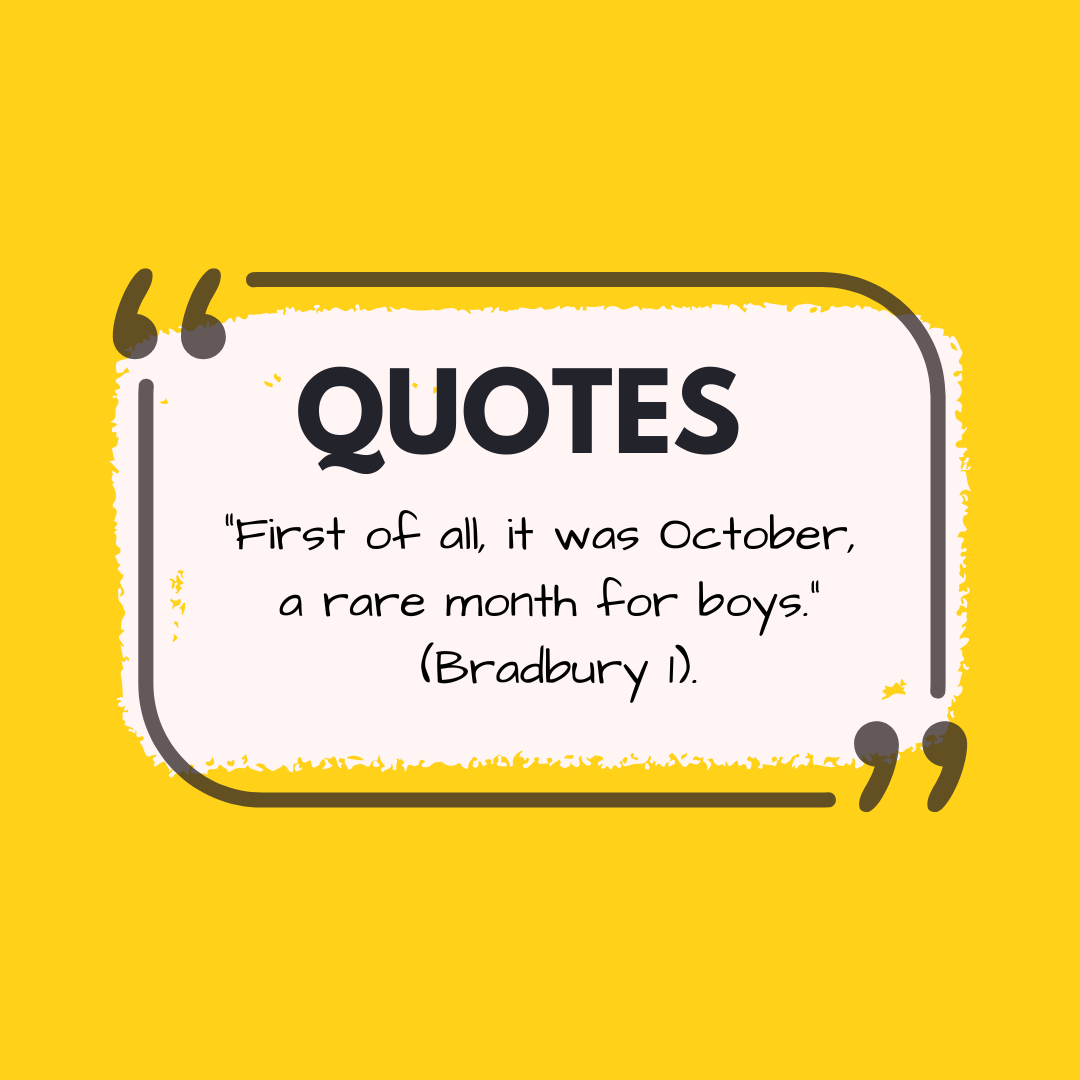
In the 6th word of the book Something Wicked This Way Comes, Bradbury has signaled that he is referring to October–both actually and symbolically. Ray Bradbury wrote about October in several of his short stories and books. This is an important bit of information to know about Ray Bradbury.
Many writers have commended Ray Bradbury as having been instrumental in their writing careers:


“I was warped early by Ray Bradbury… As a young teenager, I devoured Ray Bradbury’s Fahrenheit 451.” – Margaret Atwood -Author of The Handmaid’s Tale and other titles
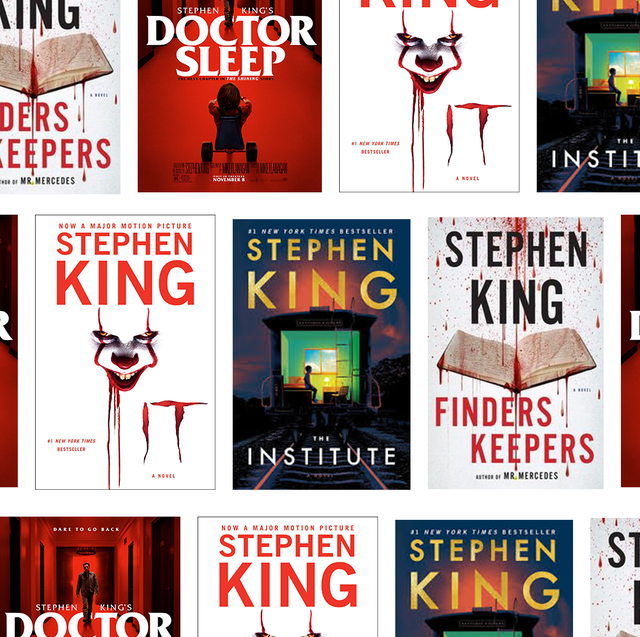
“Without Ray Bradbury, there would be no Stephen King.” – Stephen King Author of too many books to name

“I can imagine all kinds of worlds and places, but I cannot imagine a world without Bradbury.” Neil Gaiman – Author of “The Sandman” and numerous other books
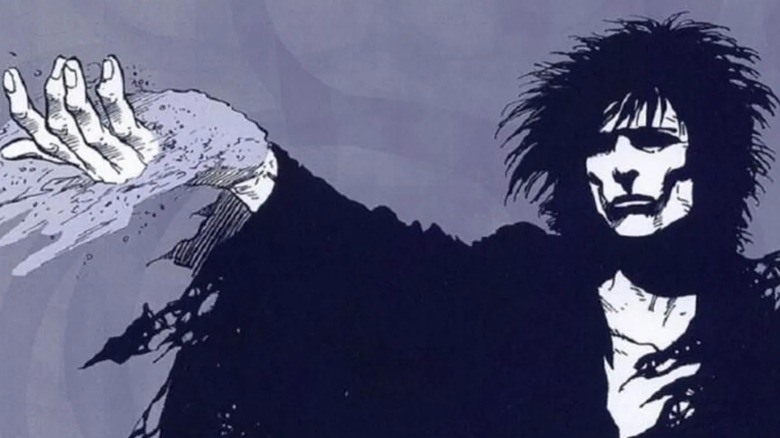
Ray Bradbury first published Something Wicked in 1962, but he had written bits and drabs of that book much earlier.
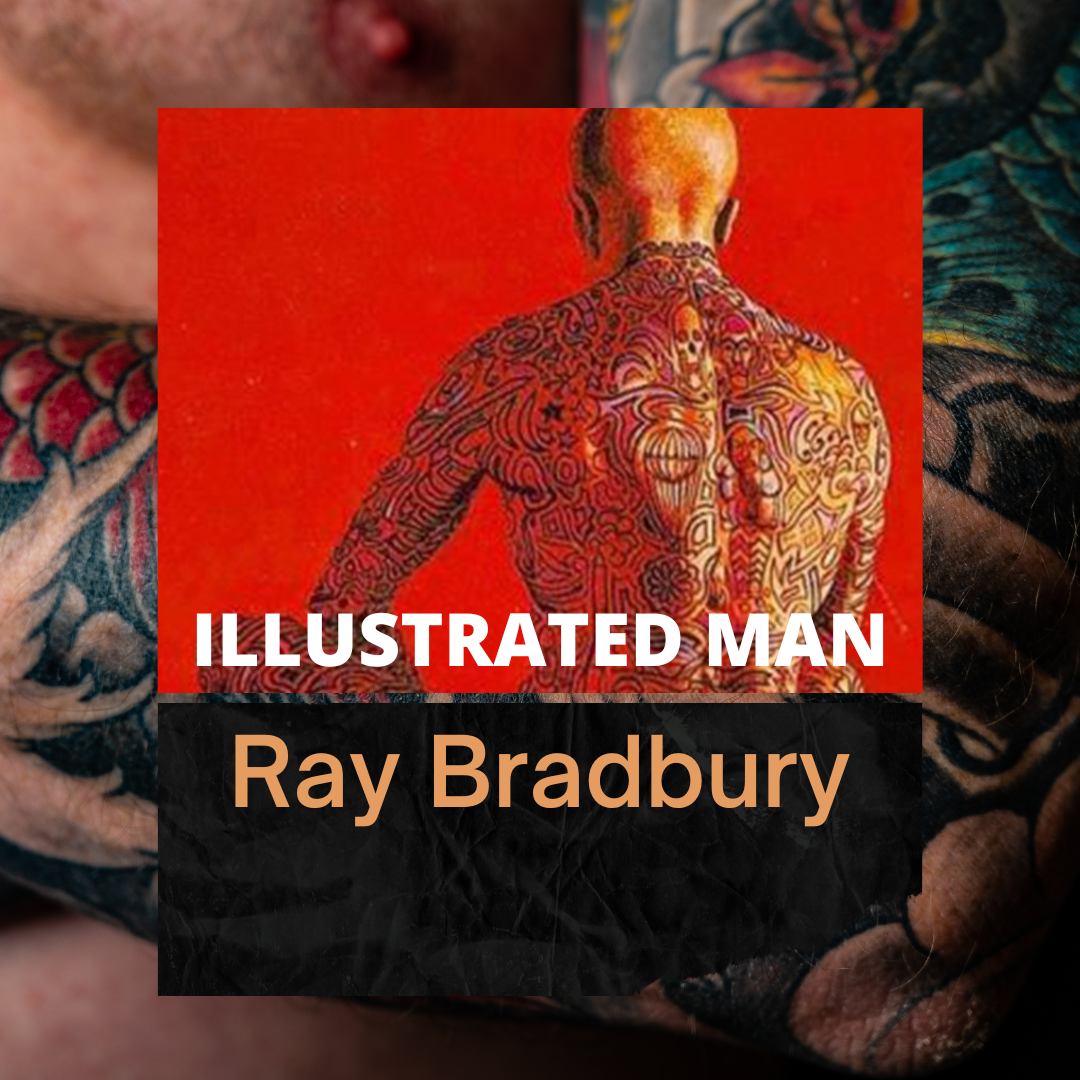
For instance, his book Illustrated Man was initially published in 1951.
Illustrated Man is a book filled with short stories–all of the tales can be read in the tattoos on the man’s back.
Tattoos are also part of Bradbury’s later book Something Wicked This Way Comes.
In 1948, Bradbury wrote a short story titled “The Black Ferris.” Initially, “The Black Ferris” was printed in a volume of stories called “Weird Tales.”
After that. “The Black Ferris” was re-released as a comic book, which I believe was the predecessor of today’s graphic novels:
The E.C. comic book version of “The Black Ferris” was published in 1953. I am quite sure that there is a connection between that story and Bradbury’s later novel Something Wicked This Way Comes, but I also see a connection to Natalie Babbit’s Tuck Everlasting, which was first published in 1975.
In Tuck Everlasting, Babbitt tells us that August rests near the very top of the Ferris Wheel.
The Prologue of Tuck Everlasting
“The first week of August hangs at the very top of summer, the top of the live-long year, like the highest seat of a Ferris wheel when it pauses in its turning. The weeks that come before are only a climb from balmy spring, and those that follow a drop to the chill of autumn, but the first week of August is motionless and hot. It is curiously silent, too, with blank white dawns and glaring noons, and sunsets smeared with too much color.” ― Natalie Babbitt, Tuck Everlasting ―
Note that before the first chapter of Tuck, Natalie Babbitt had introduced at least 3 literary themes. One theme that she introduces in the Prologue is that of the Seasons of Life.
The first paragraph of the Prologue to the book Tuck Everlasting begins as follows:
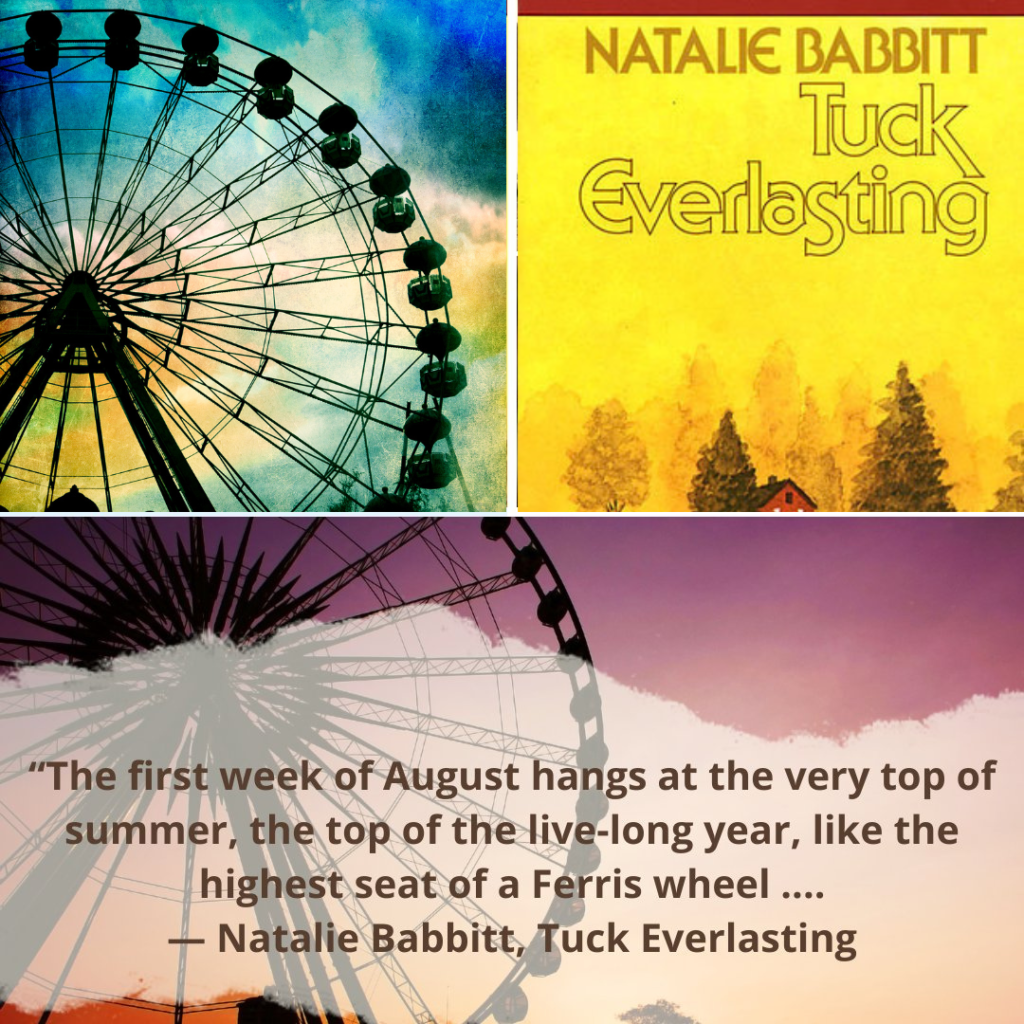
Tuck Everlasting
Prologue
“The first week of August hangs at the very top of summer, the top of the live-long year, like the highest seat of a Ferris wheel when it pauses in its turning. The weeks that come before are only a climb from balmy spring, and those that follow a drop to the chill of autumn, but the first week of August is motionless and hot. It is curiously silent, too, with blank white dawns and glaring noons, and sunsets smeared with too much color.” Babbitt, Tuck Everlasting
Within five words of the Tuck Everlasting’s beginning, Babbitt alludes to the months of the year and compares the calendar to a Ferris wheel.
Babbitt begins the book by mentioning the month of August, which is a month that lands at the end of summer–just before the beginning of fall. In literature, seasons are often symbolic. Spring is often symbolic of childhood, summer is the time of youth and young adulthood.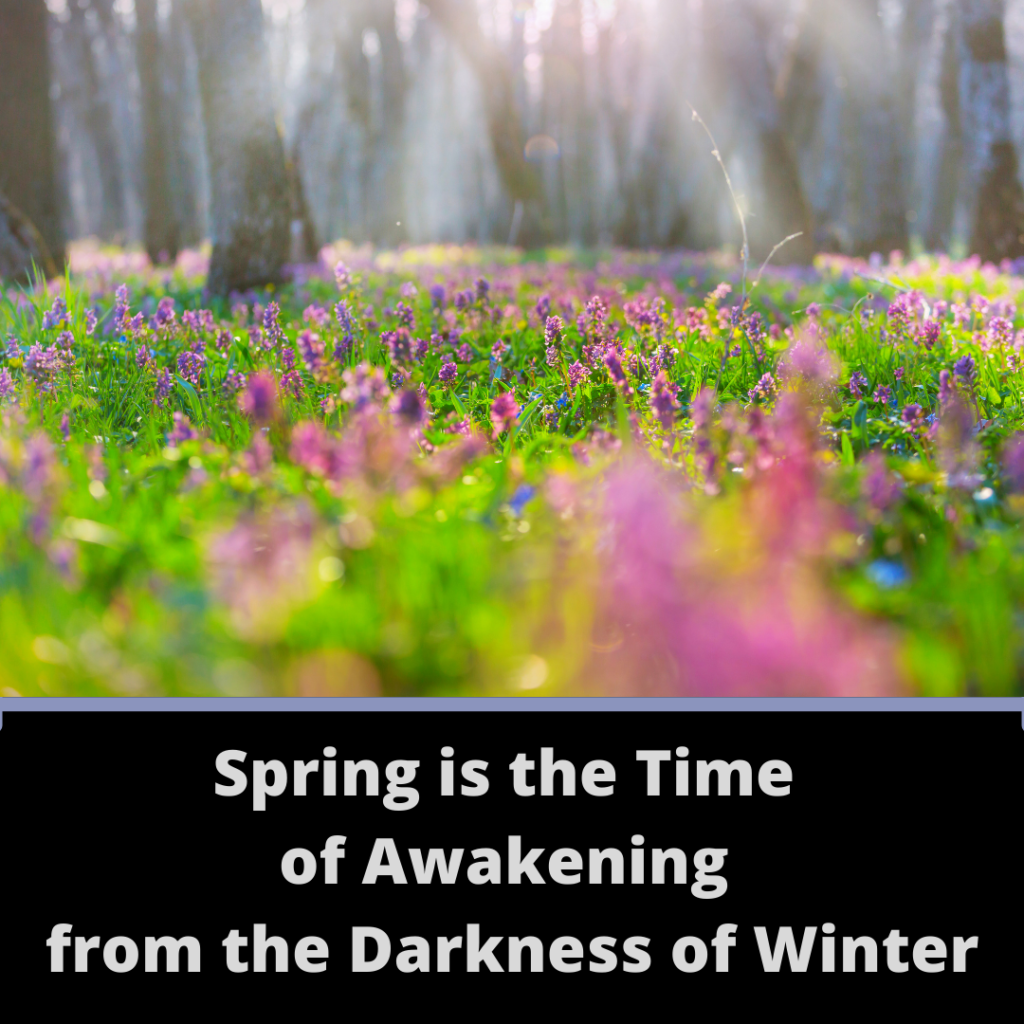
Spring is often symbolic of childhood, summer is the time of youth and young adulthood.
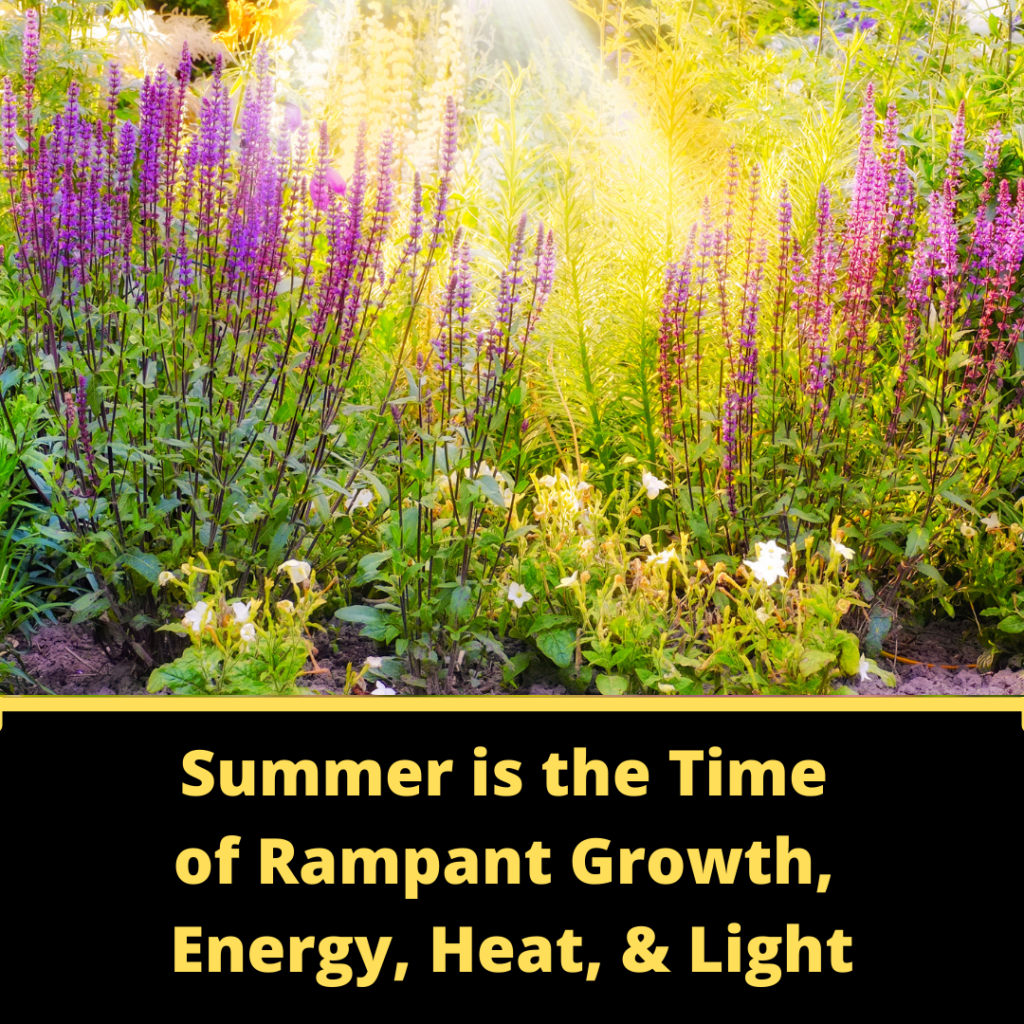
Summer is a time of hot, pulsating energy.

Most high school and college students are enjoying the summers of their lifetimes.
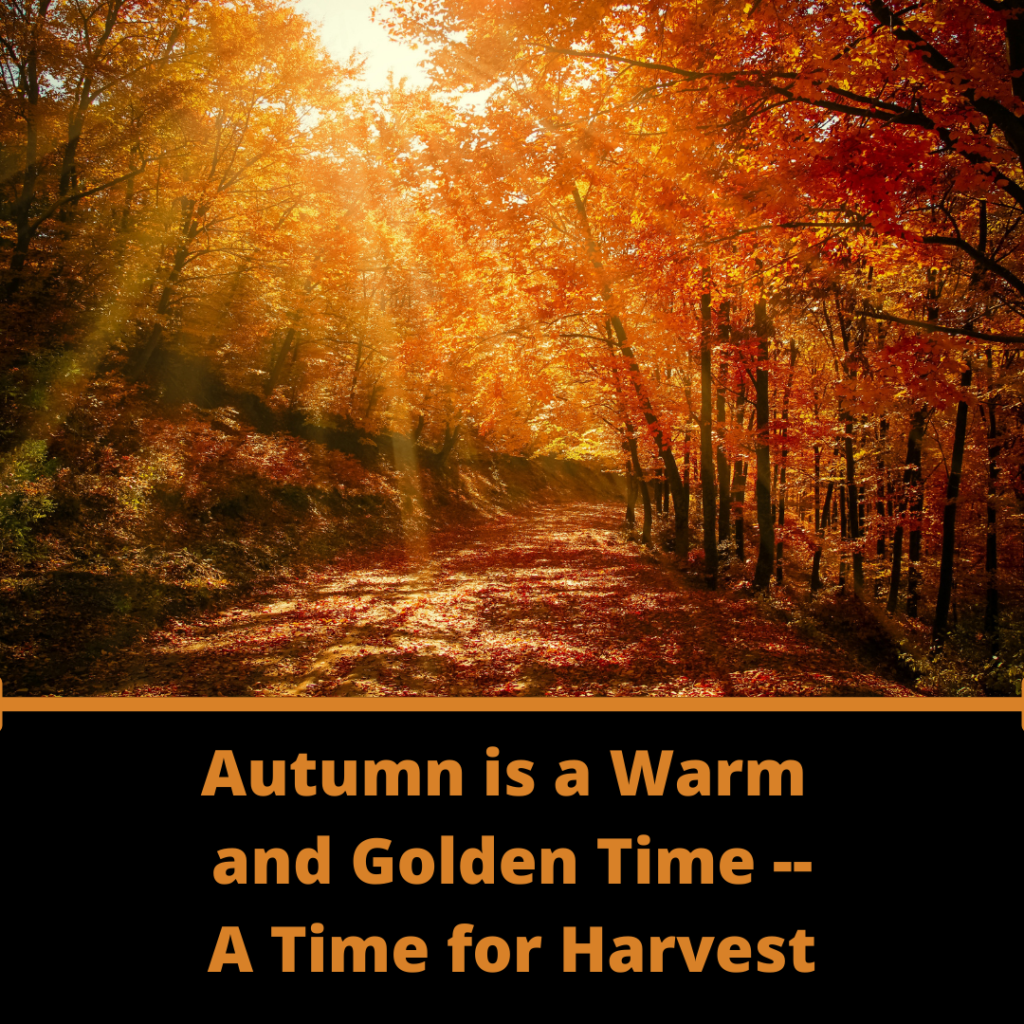 Symbolically, autumn is nearer the end of a person’s life. It is a slower, more golden time. It is a time for reflection and harvest.
Symbolically, autumn is nearer the end of a person’s life. It is a slower, more golden time. It is a time for reflection and harvest.
“The first week of August hangs at the very top of summer, the top of the live-long year, like the highest seat of a Ferris wheel when it pauses in its turning.” Natalie Babbitt
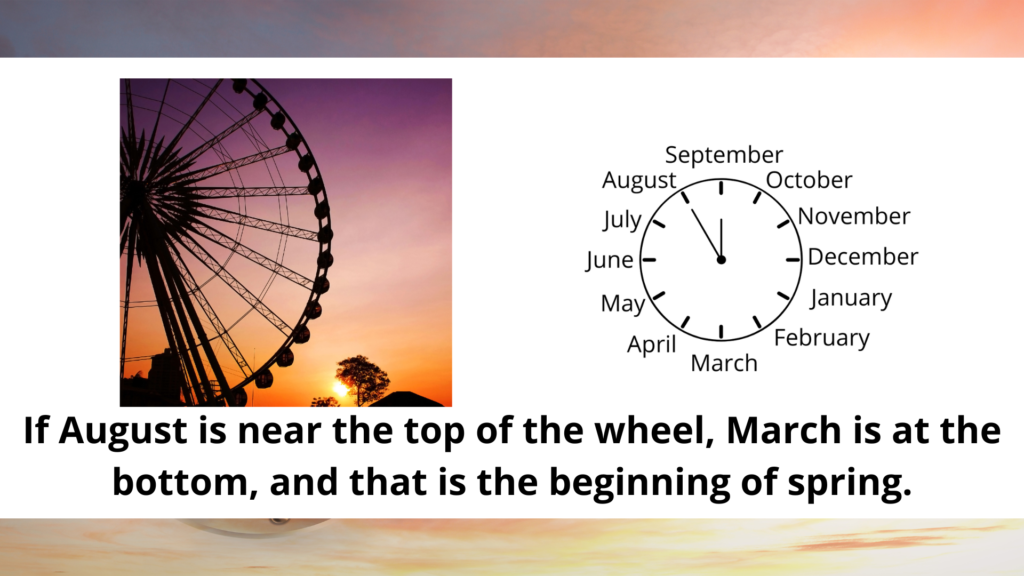
In her own words, Babbitt says that August is NEAR the top of the Ferris wheel.
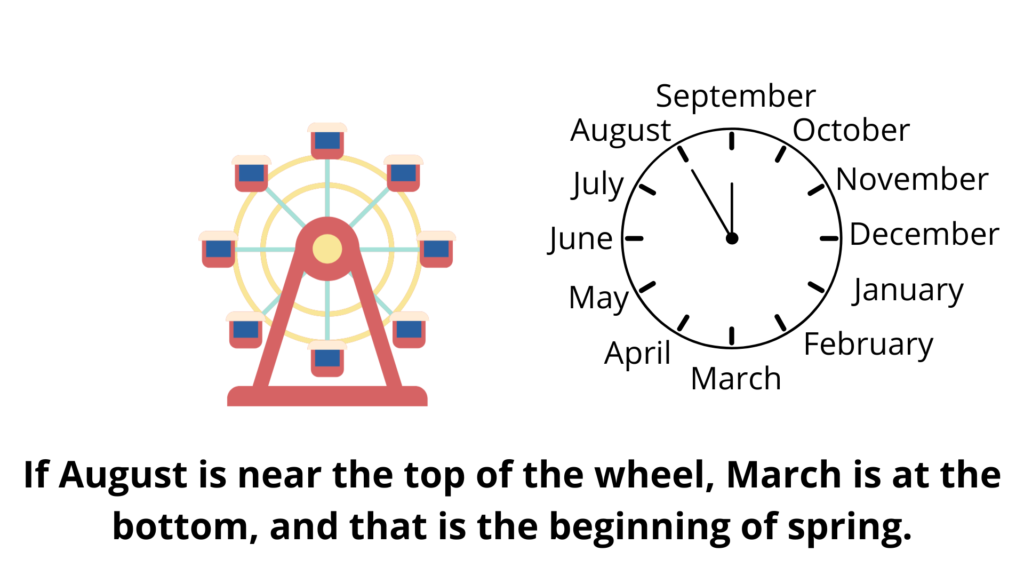
In the Prologue of Something Wicked This Way Comes, we are told that this novel is set during the month of October. If we look at the Ferris wheel again, we see that October is one of the earlier months of autumn, and we should look for older people who will have significance in the book.
In chapter 1 of Ray Bradbury’s Something Wicked This Way Comes, we meet Tom Fury, “the seller of lightning-rods.” He is living in the autumn of his life. Soon, we’ll also meet Will Halloway’s dad, and he is also living in the autumn of his life.
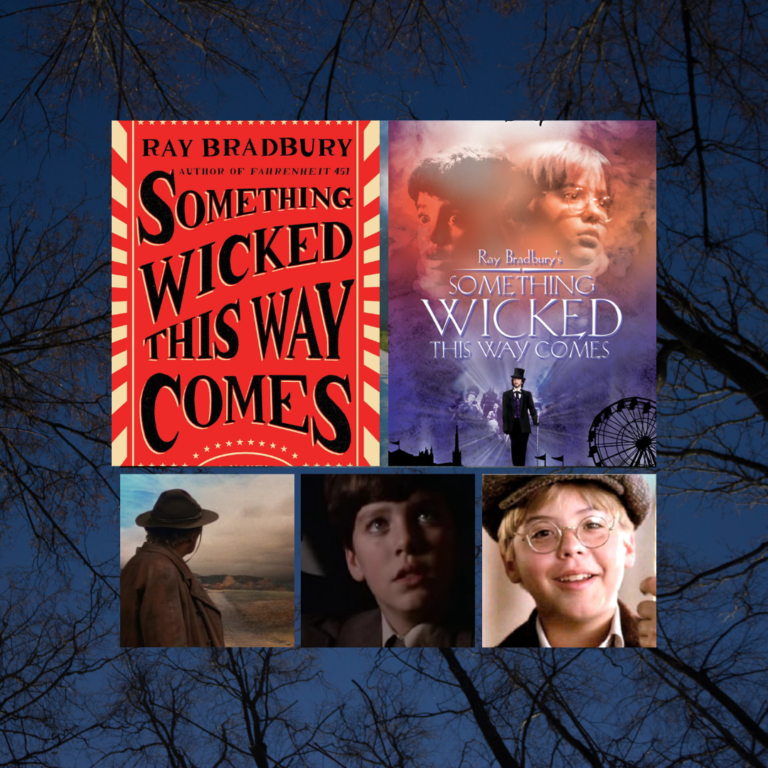
Will Halloway and Jim Nightshade are in the first stages of the summers of their lives, and Bradbury paints them as energetic, robust kids. They are filled with the vitality of life.
Before you start reading Something WickedThis Way Comes, I want you to consider annotating and highlighting your novel as you read:
Read the Prologue and Chapters 1 – 5 of Something Wicked This Way Comes
As we continue with other classwork, you will continue to read Something Wicked This Way Comes on your own.
Use a highlighter to highlight important passages and consider using tabs to help you find important material later. I recommend using Golcellia Transparent Sticky Notes, which are available from Amazon.
Read “Textual Evidence: Using Quotations, Summarizing, and Paraphrasing” Meyer and Miller, pages 1488-93
III. Class III
During the next class session, I’ll be announcing your first major paper assignment, but don’t worry about this. I’m going to walk through the process of creating a paper with you. Today, we’ll talk about Plagiarism and How to Format Quotes. You have already worked on Paraphrasing, and that is another important thing to understand about writing college papers. Paraphrasing is one way to avoid Plagiarism. Quoting correctly is another way.
Read about Georgia Douglas Johnson and read her poem “Youth.” Meyer and Miller 845-846.
Youth
Georgia Douglas Johnson – 1880-1966
The dew is on the grasses, dear,
The blush is on the rose,
And swift across our dial-youth,
A shifting shadow goes.
The primrose moments, lush with bliss.
Exhale and fade away,
Life may renew the Autumn time,
But nevermore the May!
Let’s Think about How Roses Bloom: They Bloom in Stages:
- First, the rose bloom is in bud form.
- A bloom opens out of that bud. A newly blossomed bloom is said to be in the blushing stage.
- A rose bloom quickly fades and then withers and dries away.
Important Note about Roses: May is the Month that Most Roses are in Full, Blushing Bloom.

Gene Boerner Rose – Jacki Kellum’s Garden in May
The above photo shows one of my rose bushes during the month of May. One of the blossoms is a baby, and another is in full bloom. Some roses bloom again, but most roses–especially the old garden roses–bloom only one time each year, and that is during May. During the final stage of a rose blossom’s growth, the bloom withers and dies. That is the Circle of Life.

During the Previous Class, we talked a bit about the characters who were introduced in Chapter 1 of Something Wicked This Way Comes. In the book, Jim and Will are in the early summers of their lives.
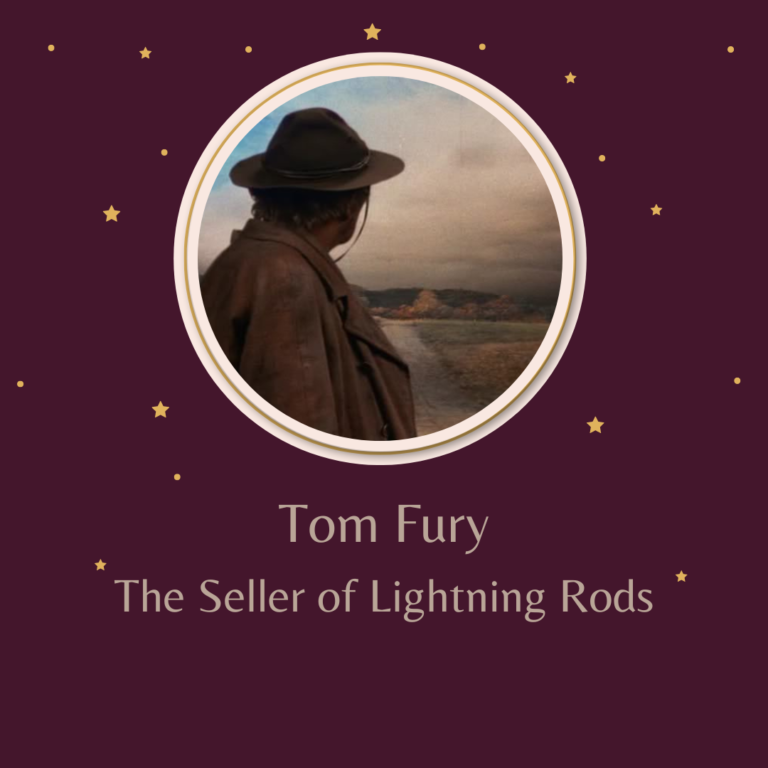
In the novel Something Wicked This Way Comes, both Tom Fury and Will Halloway’s father are living during the late autumns of their lives.
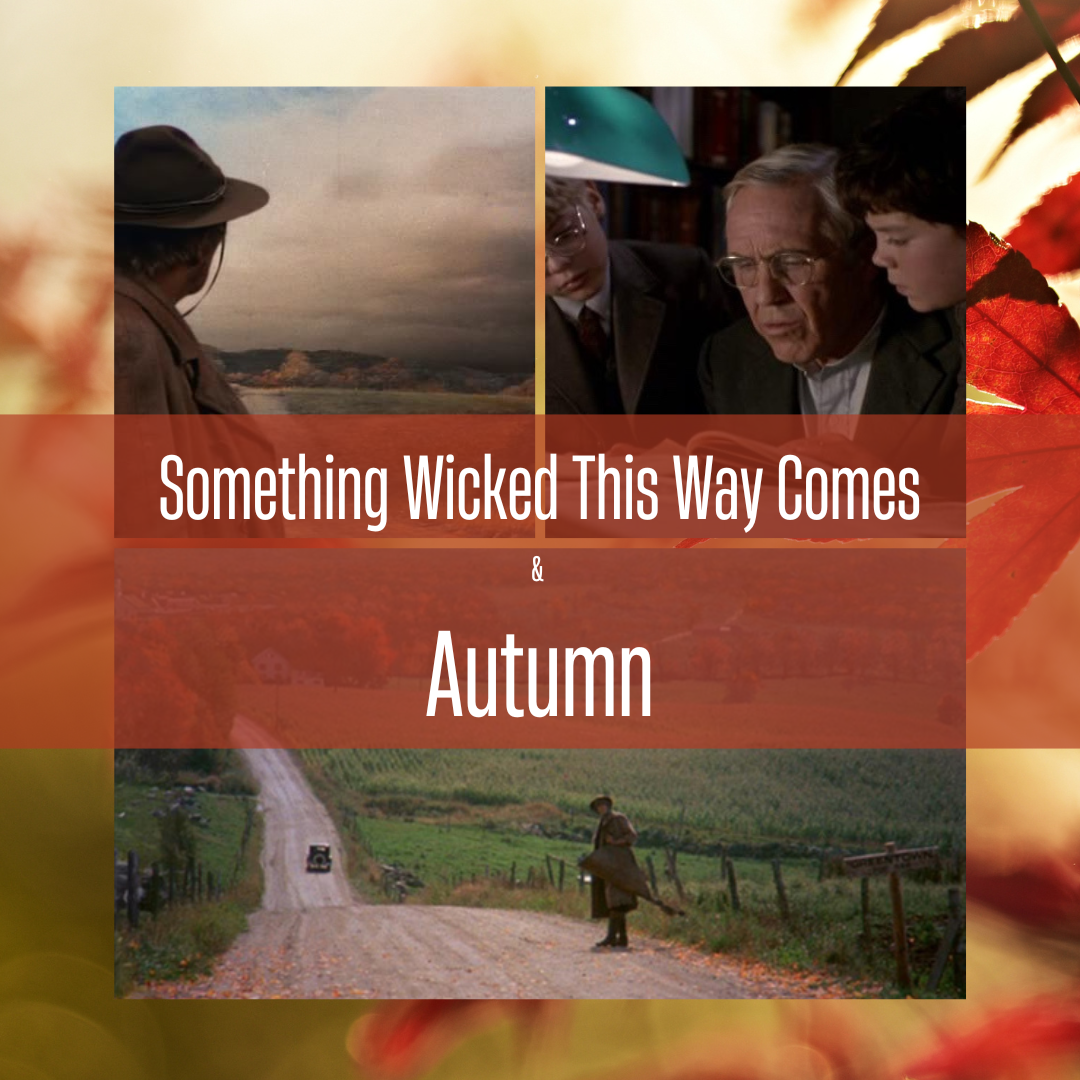
In chapter 1 of the novel Something Wicked This Way Comes, Tom Fury is an example of foreshadowing in writing:

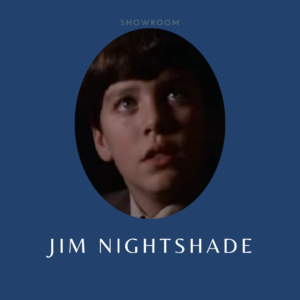
Will Halloway and Jim Nightshade are also examples of the symbols of dark versus light.
__________________________________________
*Let’s Learn How to Use Quotation Marks:
Important to Remember about Using Quotes:
- Use quotation marks at the beginning and end of a direct quotation: direct quotations use exact words.
- You do not use quotation marks in indirect quotes.
The Following is an Indirect Quote that has been Paraphrased:
She said that Percy is a very sleepy cat.
Note the word “that.” You will often see the word “that” in an indirect quote or in paraphrasing.
Examples of Quotations with Speaker Tags at the End of a Sentence:
I said, “Hello there.”
He asked, “Do you guys want to go to the mall?”
The librarian whispered, “Please keep it down.”
Mark said that he needed to leave at 5. – indirect quote–no quotation marks.
Examples of Quotations with Speaker Tags at the Beginning of a Sentence:
“I’ll be home soon,” he said.
“Can you come over?” I asked.
“Put that down!” she yelled.
“You’re a great friend,” she told me.
“Are you sure you want to do that?” I asked him.
“I loved you!” she screamed.
I’m not sure that’s what he said.
Examples of Quotations with Speaker Tags in the Middle of a Sentence:
“When you get home,” I said, “can you call me?”‘
Notice that the word “can” is not capitalized because the above example is one long sentence. It is merely interrupted by the words “I said.”
In the following example, there are 2 sentences, and the capitalization reflects that.
“I need some help,” she said.
“Can you come over?”
Examples of Quotations in “The Three Little Pigs”
This version of The Three Pigs is in the Public Domain
Example 1: A Direct Quote
The first little pig said, “We will go out into the world and try to make it on our own.”

Example 2: A Direct Quote in Mid-Sentence
The first pig that went off met a man with a bundle of straw, and said to him, “Please, Man, give me that straw to build me a house,” which the Man did, and the little Pig built a house with it.
Notice that when the quote is in mid-sentence, a comma ends the quote and not a period. The period comes at the end of the sentence.
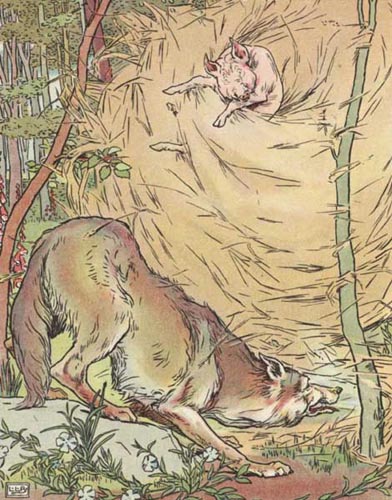
Example 3: Direct Quotes with Different Speakers in Succession.
Presently came along a Wolf and knocked at the door. He said, “Little Pig, little Pig, let me come in.”
To which the Pig answered, “Not by the hair of my chinny chin chin.”
“Then I’ll huff and I’ll puff, and I’ll blow your house in!” said the Wolf. So he huffed and he puffed, and he blew his house in, and he ate up the little Pig.
____________________________________
IV. Class IV (Aug. 24)
Roses Are Another Symbol in Literature
Anyone who has survived Valentine’s Day in the USA knows that the Rose is a symbol for Love.
from Maud (Part I)
BY ALFRED, LORD TENNYSON
“Come into the garden, Maud,
For the black bat, night, has flown,
Come into the garden, Maud,
I am here at the gate alone;
And the woodbine spices are wafted abroad,
And the musk of the rose is blown.
_________________________________________________
“A man is like a lion” is a simile.
The Rose
by Amanda McBroom
Sung by Bette Midler
Some say love, it is a river
That drowns the tender reed.
Some say love, it is a razor
That leaves your soul to bleed.
Some say love, it is a hunger, an endless aching need.
I say love, it is a flower,
And you its only seed.
It’s the heart, afraid of breaking,
That never learns to dance.
It’s the dream, afraid of waking,
That never takes the chance.
It’s the one who won’t be taken,
Who cannot seem to give.
And the soul, afraid of dyin’,
That never learns to live.
When the night has been too lonely,
And the road has been too long,
And you think that love is only
For the lucky and the strong,
Just remember in the winter
Far beneath the bitter snows,
Lies the seed, that with the sun’s love,
In the spring becomes The Rose.
Writer(s): Mc Broom Amanda
“The Rose” is loaded with figures of speech.
______________________
Assignment – Re-Read Chapter 1 of Something Wicked This Way Comes.
Writing Assignment: Based on chapter 1 of Something Wicked This Way Comes, write 2 paragraphs.
In one paragraph, describe Will Halloway. In another paragraph describe Jim Nightshade. Each paragraph should have at least 5 sentences. I want you to use at least two transition words or phrases in the two paragraphs that you write–at least one transition word or phrase in each paragraph–and another one between the 2 paragraphs. The transition word between the two paragraphs should somehow link the two paragraphs. In other words, you will be using three transition words or phrases.
You will write a paper for this class that is based on the novel Something Wicked This Way Comes. Save all the writing assignments that you do about Something Wicked. They will save you time and effort later.